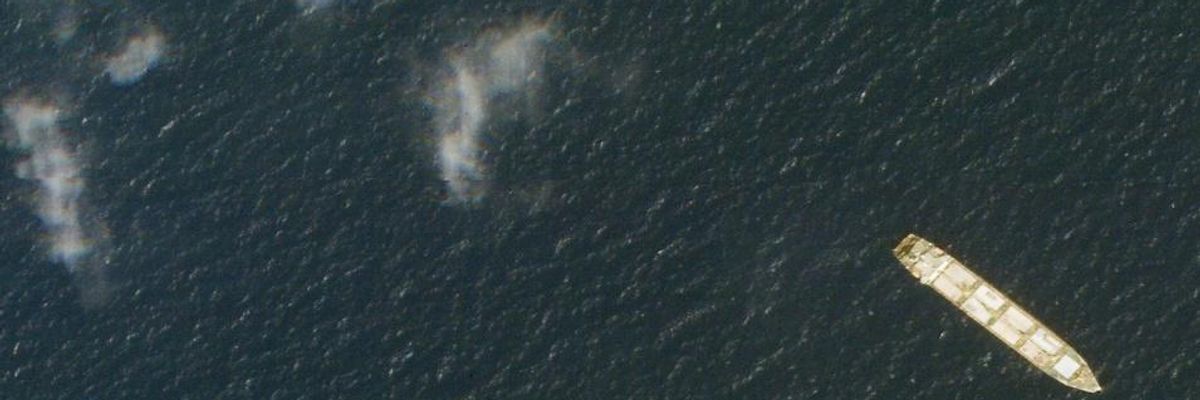This is a developing story... Check back for possible updates...
Israel reportedly informed U.S. officials that it was behind a Tuesday mine attack on an Iranian vessel stationed in the Red Sea, a dangerous escalation that came on the same day American and Iranian negotiators took part in European-led talks in Vienna on the 2015 nuclear agreement.
The timing of the attack, which Iranian media outlets reported Tuesday without assigning blame, raised suspicions that it was carried out with the express purpose of undermining steps toward a diplomatic solution on the nuclear accord. In 2018, U.S. President Donald Trump violated the agreement, which Israel's right-wing government has opposed from the beginning.
"Israel appears to be stepping up attacks on Iran to undermine diplomacy," argued Mohammad Ali Shabani, editor of Amwaj.media. "Same Catch 22 for Tehran as before: respond, and get blamed. Don't respond, and invite further attacks. One exit: Statements of condemnation from Iran's counterparts in Vienna."
Jamal Abdi, president of the National Iranian American Council, tweeted in response to the mine attack that "some U.S. lawmakers advocate for Israel to be in the room for any talks with Iran, presumably so they can blow negotiations up from the inside as well as the outside."
The New York Timesreported that while Israeli officials had yet to publicly comment on the attack as of Tuesday night, "an American official said the Israelis had notified the United States that its forces had struck the [Iranian] vessel at about 7:30 am local time."
"There was no official Iranian confirmation of the attack as of Tuesday night," the Times noted, "but several Telegram social media channels operated by members of the Revolutionary Guards blamed Israel for the explosion."
Saeed Khatizadeh, a spokesperson for Iran's foreign ministry, told reporters Wednesday morning that "no fatalities were caused by the incident, and technical evaluations on how the incident occurred and its origins are underway."
The reported Israeli attack took place as Biden administration officials joined representatives from Europe, Iran, and other parties to the nuclear accord to discuss a potential U.S. return to the 2015 agreement, which Biden says he supports.
Abbas Araghchi, Iran's deputy foreign minister and lead negotiator in the talks, said Tuesday that the talks are on "the right track" but "it's too soon to say it has been successful."
Anti-war groups in the United States are hoping for a diplomatic breakthrough following years of saber-rattling by Trump, whose aggressive rhetoric and actions repeatedly dragged the U.S. and Iran to the brink of all-out military conflict.
"The American people, and the Iranian-American community in particular, want the Biden administration to resolve our ongoing disputes with Iran through diplomacy," Abdi said in a statement earlier this week. "Under Trump, the specter of war loomed large and was only narrowly avoided. It is encouraging to see renewed momentum toward a return to the deal under Biden."
"The U.S. can't afford to let this window pass without restoring the strong nonproliferation agreement that already navigated the difficult politics of Washington and Tehran," he added. "It is time to reseal the deal."

